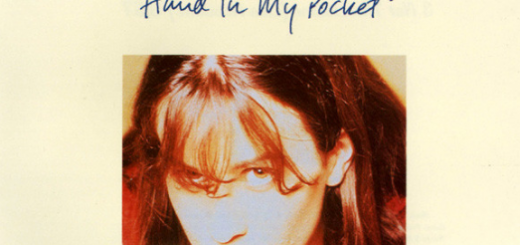02. You Oughta Know by Alanis Morissette Lyrics Meaning – Unveiling the Layers of Emotional Turmoil
Lyrics
I wish nothing but the best for you both
An older version of me
Is she perverted like me?
Would she go down on you in a theater?
Does she speak eloquently
And would she have your baby?
I’m sure she’d make a really excellent mother
‘Cause the love that you gave that we made
Wasn’t able to make it enough for you
To be open wide, no
And every time you speak her name
Does she know how you told me
You’d hold me until you died
‘Til you died, but you’re still alive
And I’m here, to remind you
Of the mess you left when you went away
It’s not fair, to deny me
Of the cross I bear that you gave to me
You, you, you oughta know
You seem very well, things look peaceful
I’m not quite as well, I thought you should know
Did you forget about me, Mr. Duplicity?
I hate to bug you in the middle of dinner
It was a slap in the face
How quickly I was replaced
And are you thinking of me when you fuck her?
‘Cause the love that you gave that we made
Wasn’t able to make it enough for you
To be open wide, no
And every time you speak her name
Does she know how you told me
You’d hold me until you died
‘Til you died, but you’re still alive
And I’m here, to remind you
Of the mess you left when you went away
It’s not fair, to deny me
Of the cross I bear that you gave to me
You, you, you oughta know
‘Cause the joke that you laid in the bed
That was me and I’m not gonna fade
As soon as you close your eyes, and you know it
And every time I scratch my nails
Down someone else’s back I hope you feel it
Well, can you feel it?
And I’m here, to remind you
Of the mess you left when you went away
It’s not fair, to deny me
Of the cross I bear that you gave to me
You, you, you oughta know
Alanis Morissette’s 1995 hit ‘You Oughta Know’ stands as a monumental anthem of the ’90s, emblematic of the raw emotional eruption emblematic of post-breakup angst. At the surface, the song is a direct confrontation to an ex-lover, ribboned with barbed lyrics that have been etched into the collective consciousness of anyone who’s ever felt scorned. However, it’s the piercing introspection and potent delivery that turned this fiery track into a cathartic emblem for the jilted.
Peeling back the layers of Morissette’s ferocious delivery and jagged-edged prose reveals a narrative steeped in complexity and heartache. It’s a masterclass in transforming personal pain into a public exclamation, making ‘You Oughta Know’ a timeless ode to the brokenhearted who seek solace in the semblance of shared experience.
A Sonic Portrait of Betrayal
The song wastes no time in painting its sonic landscape—unforgiving and saturated with betrayal. From the vigorous bass line to the relentless vocal intensity, each element captures the turmoil of being replaced swiftly and without warning. The confrontational questions Morissette poses in the opening sequence are not just inquisitive—they border on an accusation, a demand for accountability that echoes through the years.
This isn’t just Morissette processing her emotions; it’s a challenge thrown at the feet of every listener who’s faced the sting of abandonment. With an almost invasive intensity, the track forces its audience to confront their own stories of loss and disbelief, rending a universal fabric of dismay webbed across heartbreak.
The Hidden Meaning Behind the Confrontation
Beneath the fiery veneer of the song’s narrative is a labyrinth of emotions more complex than simple anger or jealousy. The ‘hidden meaning’ often debated by fans and critics alike points to Morissette’s grappling with self-worth and identity in the face of rejection. The song’s raw edge seems not just about the treachery of the one who left, but also about the enduring pain of reevaluating one’s self in the hollowed aftermath of a connection severed.
When Morissette references the ‘excellent mother’ her replacement is expected to be or the eloquence she may possess, it’s not just a comparison between two lovers—it’s a piercing critique of self in the eye of societal norms and expectations. This layer resonates with many who’ve ever questioned their value after being deemed ‘not enough’.
Memorable Lines That Echo Through the Decades
‘And every time you speak her name, does she know how you told me you’d hold me until you died,’ is a line that exemplifies the eternally felt sting of betrayal matched with poignant sincerity. These words allow us to peer into Morissette’s soul—betrayed not just by a partner’s infidelity, but by the shattered promises and the haunting permanence of words once given.
The lyricism here serves as a mirror, reflecting the disparity between the permanence of words and the transience of feelings. It is a reminder that the echoes of what was said in love can resound more painfully than the act of leaving itself.
The Vengeance in Vulnerability
There’s an undeniable element of revenge that ‘You Oughta Know’ taps into, but it’s a vengeance birthed from vulnerability. ‘And every time I scratch my nails down someone else’s back I hope you feel it,’ is less about the physical act described and more about the desperate need to make her presence and pain felt. It’s an admission of the deep-seated need to reclaim power in a dynamic where it’s been stripped away.
These lyrics serve as a battle cry for anyone who has ever wanted their pain to be acknowledged by the one who caused it. It challenges the silence and disregard with which such emotional calamities are often met, demanding a reckoning with the impact of one’s actions.
A Cultural Touchstone for Empowerment
‘You, you, you oughta know,’ becomes the incantation that transforms personal grief into an anthem of empowerment. This relentless refrain becomes the rallying call for the broken to reclaim their voice and recognize their own power, even within the context of loss and betrayal.
As Morissette declares her undiminished existence in spite of the chaos left behind, listeners too are compelled to stand in the wreckage of their own relational tumult and declare their unassailable place in the world. In the final analysis, the song’s enduring legacy is not just a testament to its emotional verity but also to its ability to embolden those who sing along to harness their indignation and turn the page towards an unfettered future.








